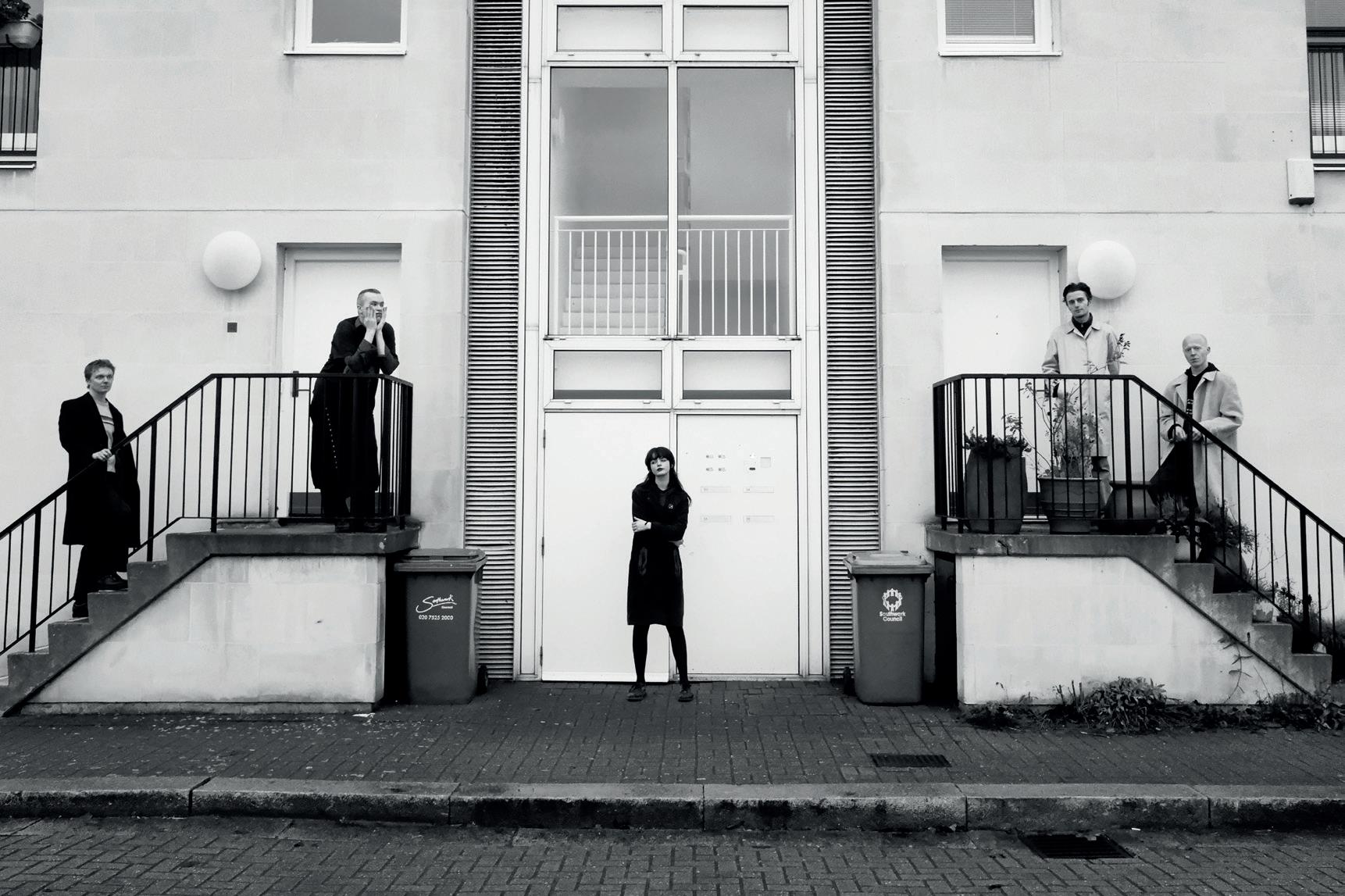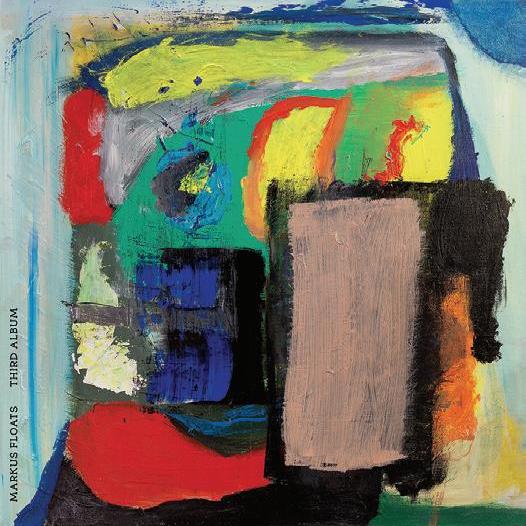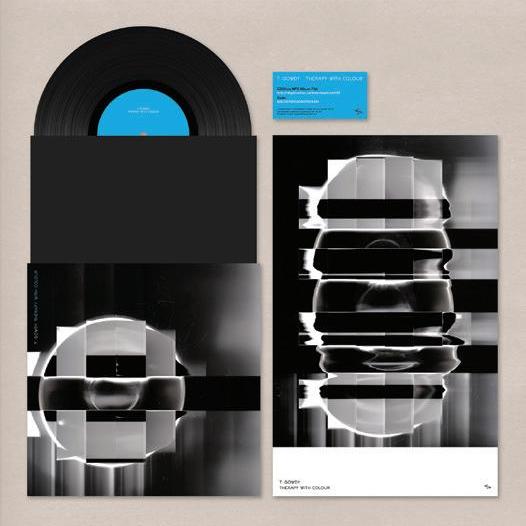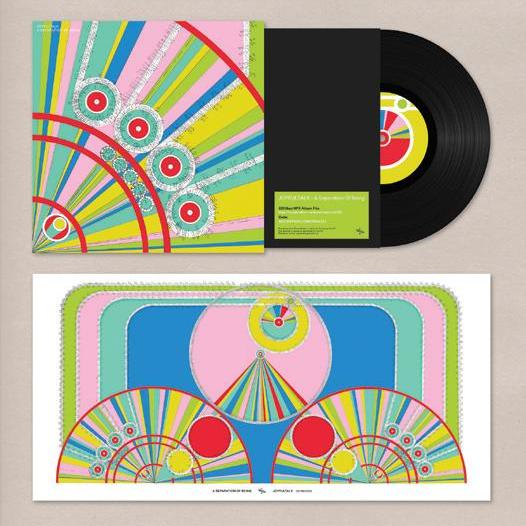
7 minute read
Blue Bendy
Committee meeting, by Jess Wrigglesworth Photography by Tom Porter
A couple of weeks before Christmas Blue Bendy did something which has become rather unusual these days: they played an actual, real life show, to a real life audience, albeit one seated in a socially-distanced formation. “It felt a bit like a school recital, but in quite a nice way,” says synth player Olivia Morgan of the gig at Brixton’s Windmill. I recall the first time I saw Blue Bendy, a performance which felt like anything but – frontman Arthur Nolan meandering around his five bandmates as they vied for space on a makeshift stage, playing to a very rowdy crowd at New Cross’ now defunct Five Bells. A seated audience must have been quite a contrast. “I mean, we felt quite nervous about it for a couple of reasons,” Nolan admits. “I was thinking about how it would translate, if it was going to be awkward, but it was actually alright. Something about it kind of suited us, I think.” It seems that the band has come a long way since those early show. Formed in 2017 by Nolan and guitarist/synth player Joe Nash shortly after both had moved to London from Scunthorpe (“I was just sort of making some music on my own and Joe had heard them. He approached me and said, ‘You’re amazing, can I start a band with you?’ and I said, ‘Yeah fine.’”), the band was initially completed by bassist Sam Wilson, Harrison Charles on guitar, and Oscar Tebbit on drums. “We asked [Oscar] to join because he could ride a motorbike and we thought that’d be a good idea. It’s good for posing with,” Nolan deadpans. It wasn’t until they’d been gigging for almost a year that Morgan joined the group, bringing with her another synthesiser and softlyuttered vocals that serve as the perfect counterpart to Nolan’s Lincolnshire drawl – think Laetitia Sadier meeting Mark E. Smith. “Since Olivia joined, it feels like we’ve been trying to make something weirder, and poppier,” says Nash. Their first show as a six-piece was in June 2018, although Morgan was yet to learn all the parts. “I’d only been playing for a week or something, so I was kind of fake playing on stage,” she laughs. “No one knew.” More gigs followed, including coveted support slots with Squid, The Magic Gang, Scalping and Omni, which won them plenty of new fans, including Franz Ferdinand frontman Alex Kapranos, who approached them backstage after the Omni show. “We came offstage and he was just there talking
Advertisement
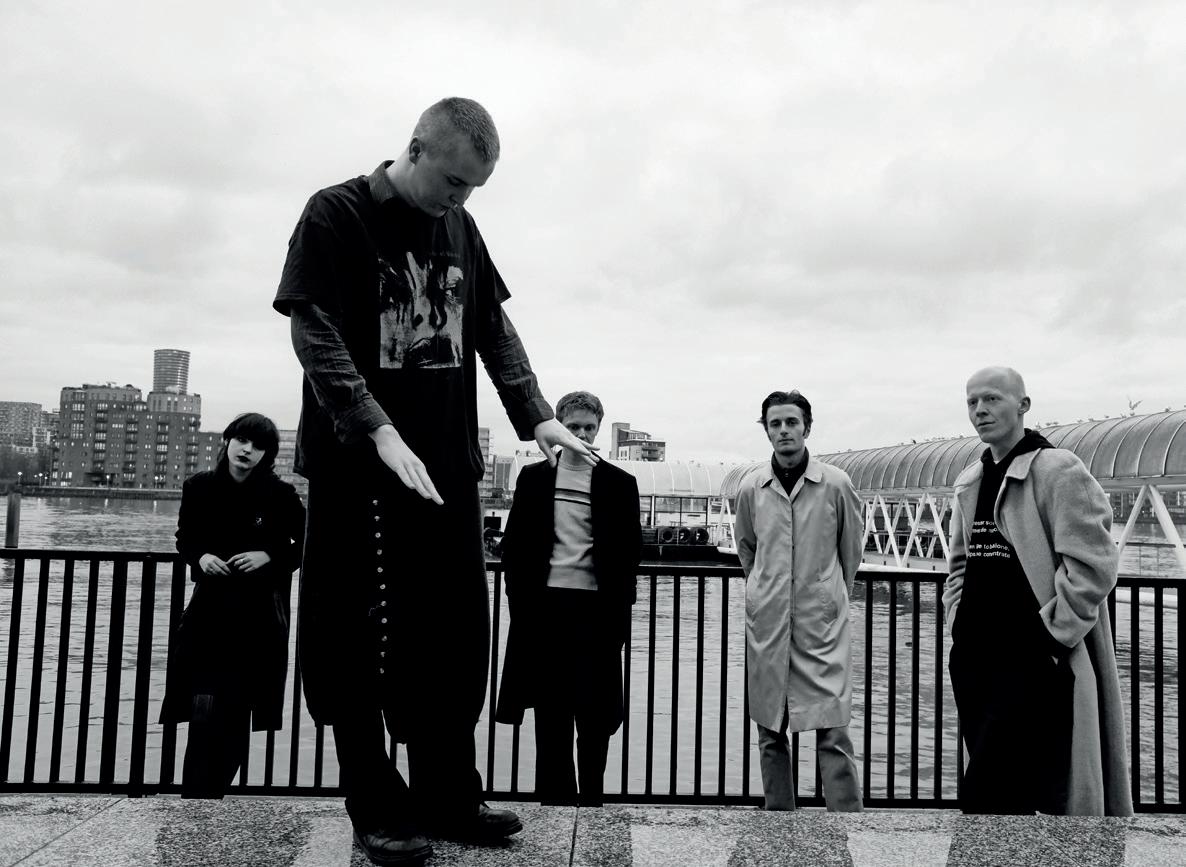

to us,” says Nolan. Do they keep in touch? “I think we sent him a meme,” quips Morgan. “We have a bit of back and forth with him on Instagram,” says Nash, “he’s a part-time commenter on our posts.” Surely enough, when a picture of the band crops up on my feed that evening, Kapranos has commented: “Great photo!”. The band are planning on sending him their new music once it’s done, and they share a collaborator – the producer Margo Broom, who has worked with Goat Girl and Fat White Family, and at whose Hermitage Studios Blue Bendy have been spending increasing amounts of time. Broom comes up a lot over the course of our chat, and it’s clear that access to her and her studios has had a major impact in developing the band’s sound. “She heard ‘Suspension’ and wanted to get us in,” Nolan recalls. “I guess she liked it to some degree and thought she could do a better job, basically.” Broom seems to be a kind of mentor and, at times, a seventh member. “I don’t think [she] would like me saying this, but we’re often sort of all over the shoulder, keeping an eye on what she’s doing. They say not to make certain things part of a committee, but it’s quite a lot of give and take, I think.”
— Slay your darlings —
Making things happen genuinely by committee, in a band of six, is no mean feat, but it is clear that each member has a real say in every aspect of Blue Bendy. “It’s democratic, isn’t it?” Charles says, as the others appropriately nod. “I think when there’s six of you, you’ve gotta realise – and it’s taken a while – that sometimes less is more. And you’ve just got to strip everything back.” “I mean, we all have the same end goal,” says Nash, adding that having Hermitage Studios at their disposal has helped the group dynamic. “Before, you’d be in like a pressure cooker of a three-hour studio that you’re renting for £15 an hour. And everybody wants their part at the end of the day, and you’re trying to argue for it but also trying to think about it fitting into the song. We’re much better at it now, but in the past there have been times where you had to either stand your ground and stake your claim, or just think, ‘This isn’t worth it’ and accept the change.” “There’s a lot of slaying of darlings isn’t there?” posits Nolan. “There’s a lot of slaying of dreadful songs as well,” replies Charles, much to the others’ amusement. Even watching them interact over Zoom, it’s obvious how well and how easily they get along. It must help that they all have a similar taste in music, although when I ask about their shared reference points they seem reluctant to name names. “I suppose we’re all Aphex Twin fans, or Radiohead fans,” Nolan offers. “If you can make the argument of something having any sort of musical merit, then I think that’s probably something that we’re all into,” adds Nash. A press release lists Arthur Russell, Boards of Canada, Tindersticks and Broadcast among their influences, but
ultimately, Charles says, their musical references don’t feed into their output in a literal sense. “I guess it doesn’t really come into the creative process, does it? I mean, maybe there’s a couple of touchstones but mainly it’s about serving the general idea of whatever Arthur brings in. I think we’re all just kind of trying individually with our own instrument to serve that song as best we can.” So far it seems to have worked as a tactic. While there are certainly echoes of those other bands in the four tracks Blue Bendy have currently released, they’ve established a sound all of their own – a hypnotic mesh of grungey guitars and whimsical Stereolab-esque pop brought down to earth by Nolan’s impassioned vocals, his delivery oscillating between curt spoken word and a melancholic croon undeniably indebted to Morrissey. Recent singles ‘International’ and ‘Glosso Babel’, the first products of their work with Broom, suggest they’re only getting better. “Those are probably the most collaborative songs we’ve done,” Nolan says of the tracks, which came together in Broom’s studios early last year, and which they self-released on Nash’s label Simonie Records. “The label was something I’ve wanted to do for a while,” he says. “We had these tracks finished and we wanted to get them out there, we just didn’t have anyone to put them out because everybody sort of went cold with coronavirus – that’s a strange choice of words, but everybody that we were speaking to sort of dropped off.” Aside from being ghosted by record labels, the tumult of the pandemic hasn’t had too detrimental an impact on
their music. “I was kind of worried, you know, especially around sort of April time, thinking maybe it’s gonna go off the boil,” Nolan admits, “but from July onwards, it kind of feels like everyone – I mean, I don’t wanna speak for everyone, but it feels like everyone’s a lot more up for it at the minute, weirdly more than even before, I think.” Not having the time constraints and pressures of continually playing shows, Nash says it’s been liberating. “You think, ‘Well there’s nothing else to do. And we have this space available to us. Let’s get it all done. Let’s write loads more, and let’s record loads more than we’d normally have the time to do.’” “I wanted to basically come out of it a new band,” says Nolan. “Lots more things recorded, nearly a completely different setlist – to feel like we’re taking it up a notch. And I think that’s kind of what we’re achieving, I think we are much tighter, I think we’re better musically than we were before. We’ve never felt more cohesive. I certainly haven’t felt as happy with everything as a whole as I do now.”
